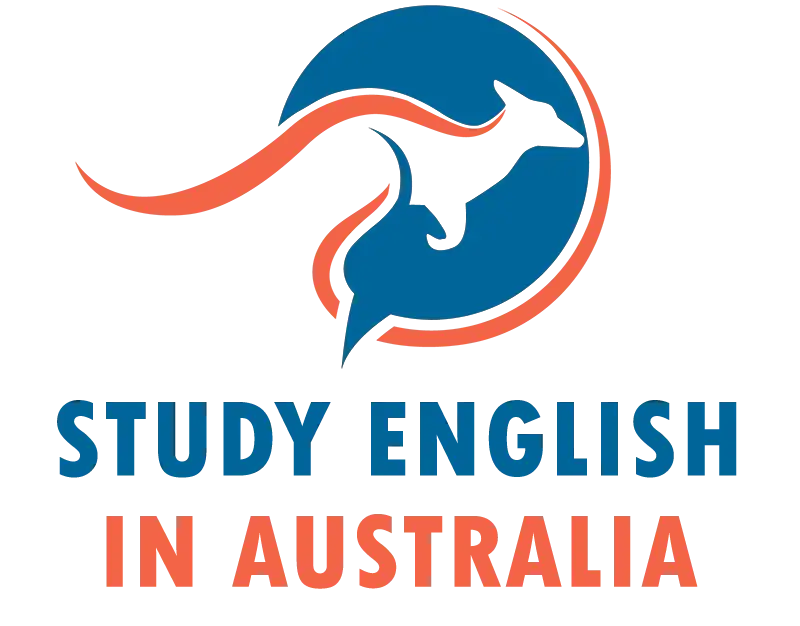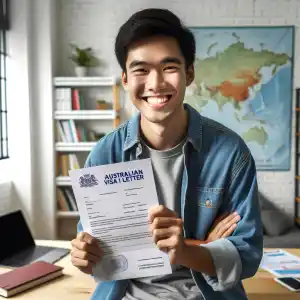All You Need to Know About Australia's Subclass 500 Student Visa

Australia's Subclass 500 Student Visa offers international students the opportunity to immerse themselves in Australian education. Here's everything you need to know about this visa:
- Duration of Stay: The visa permits a stay up to 5 years, aligned with your enrolment.
- Cost: The visa application starts from AUD 710, unless exemptions apply.
- Processing Times: These can vary, so check the official Australian immigration website for updated information.
- Benefits: With the Subclass 500 Student Visa, you can:
- Enroll in an eligible course of study in Australia.
- Travel in and out of Australia.
- Work up to 48 hours per fortnight when your course is in session.
- Eligibility: To qualify for the Subclass 500 Student Visa, you must:
- Apply online, whether in or outside Australia.
- Be enrolled in a course of study in Australia.
- Hold Overseas Student Health Cover (OSHC), or fall into one of the exemption categories.
- Be at least 6 years old.
- If under 18, prove that you have a welfare arrangement in place.
- If you're in Australia, you must hold an eligible substantive visa.
It's important to note that a substantive visa ceases to be in effect if another substantive visa is granted. Applications are received in Australian Eastern Standard Time (AEST) or Australian Eastern Daylight Standard Time (AEDST) when applicable.
Opportunities Provided by the Visa
The Subclass 500 Student Visa enables you to:
- Enroll in an approved course of study in Australia.
- Travel in and out of Australia freely.
- Work up to 48 hours a fortnight during your course or training session. However, students pursuing a masters by research or doctoral degree, along with their families, face no work limit.
Length of Stay
This temporary visa allows you to study in Australia for up to 5 years. The exact duration is determined by the type and length of your chosen course. Primary school students enrolled in years 1-4 are usually granted a student visa for a maximum of 3 years.
Extension of Stay
To continue studying in Australia, you need to apply for a new Student visa. If your visa is set to expire before your graduation, you might qualify for a Visitor visa (subclass 600), provided you have a letter from your education provider stating your graduation date.
Visa for Graduates
Those who have recently graduated from specific Australian qualifications might be eligible for a Temporary Graduate visa (subclass 485). Recent engineering graduates from recognised institutions might qualify for the Skilled Recognition Graduate visa (subclass 476). For those who wish to extend their stay for reasons other than study, they must apply for a new visa that matches their circumstances.
Including Family Members
You can include family members in your visa application. A family member can be your partner or your partner's dependent child who is unmarried and hasn't turned 18 as yet. However, if the child turns 18 by the time the visa is finalised, they need to apply for their visa independently.
Financial Considerations
The visa costs AUD 710 for the main applicant unless exempted. Charges apply for each family member included in the visa application.
If COVID-19 prevented you from completing your course within the original visa's validity and you need to apply for a further visa to finish your studies, you might qualify for a fee waiver. Other costs might include health checks, police certificates, and biometrics.
Application Details
Applications can be submitted whether you're in or outside Australia. If your application includes a package of courses ie English/ Diploma/ Bachelor, then you'll need to provide a Confirmation of Enrolment (CoE) for each course.
Processing Times
Processing times vary based on the sector:
- Foreign Affairs or Defence Sector: 1-35 days
- Postgraduate Research Sector: 3 days-4 months
- Non-Award Sector: Less than 1 day-19 days
- Schools Sector: 9 days-60 days
- Independent ELICOS Sector: 5 days-35 days
- Vocational Education and Training Sector: 7 days-46 days
- Higher Education Sector: 4 days-24 days
Processing may take longer due to incomplete applications, missing documents, additional required information, or verification of your information. So make sure your application is complete when you submit for a faster processing time.
Obligations and Travel
You and your family must comply with all visa conditions and Australian laws. You can travel outside Australia and return as many times as you want while the visa is valid. However, time spent outside Australia does not extend the visa.
Eligibility for Student Visa: Understand the Prerequisites
-
Age Requirement For school students (excluding secondary school exchange students), the age requirement to apply for a student visa is 6 or above. Moreover, age constraints based on the year of study are as follows:
- You must be less than 17 years old when you commence Year 9
- You must be less than 18 years old when you start Year 10
- You must be below 19 years when you initiate Year 11
- You must be less than 20 years old when you embark on Year 12
-
Course Enrollment and Proof Your student visa application should include evidence of your enrolment in a course of study. If this is not provided, the application will not be considered valid and will not be processed.
-
Confirmation of Enrolment (CoE) Enrollment in a full-time course registered on the Commonwealth Register of Institutions and Courses for Overseas Students (CRICOS) is a necessity. For applicants outside Australia, provide a CoE for each course of study with your visa application. For those applying within Australia, provide a CoE or Letter of Offer for all intended courses. You need to provide your CoE before Immigration can issue your visa.
-
Packaged Courses and CoEs If you're applying for multiple courses in your student visa application, make sure to include all CoE codes in the application form. If not, your visa period might only consider the duration of the course according to the CoE provided. The courses in your student visa should be linked, meaning one course should clearly lead to the next. Any course gaps must be under two months, unless the first course ends at the year's end and the next begins at the start of the new academic year.
-
Other Enrollment Evidence Certain scenarios do not require a CoE:
- Full-time study or training under a scholarship scheme approved by the Australian Minister for Foreign Affairs and Trade. Here, you need to provide a letter of support.
- Sponsorship by the Australian Department of Defence: Provide a letter of support.
- Secondary exchange student: Provide an Acceptance Advice of Secondary Exchange Student (AASES) form.
- Postgraduate research student awaiting thesis marking in Australia: Provide a letter from your education provider.
-
Welfare Arrangements for Under-18 Applicants If you are applying for a student visa and you're under 18 years old, you need to have satisfactory welfare arrangements for your stay in Australia. Applicants turning 18 upon arrival in Australia must inform us since some of this information might not be required.
-
English Language Requirements You might need to provide proof of your English language skills when you submit your visa application. Use the Immigration Document Checklist tool (web-evidentiary-tool) to identify the evidence you need to provide. If you were unable to take a test due to COVID-19, extra time is permitted for providing English language test results. The Department may ask you for evidence of your English language skills after application submission at any point during processing.
-
English Language Tests You must have taken an English language test within 2 years before applying for a student visa. The following table illustrates the minimum overall band scores you need to meet the Student visa English language requirement:
-
For the IELTS test, the minimum score required is 5.5. If you're planning to take at least 10 weeks of English Language Intensive Courses for Overseas Students (ELICOS), the score drops to 5, and it goes down to 4.5 if you're planning to take at least 20 weeks of ELICOS.
-
For the TOEFL internet-based test, the minimum score required is 46. If you're planning to take at least 10 weeks of ELICOS, the score drops to 35, and it goes down to 32 if you're planning to take at least 20 weeks of ELICOS.
-
For the Cambridge English: Advanced test, the minimum score required is 162. If you're planning to take at least 10 weeks of ELICOS, the score drops to 154, and it goes down to 147 if you're planning to take at least 20 weeks of ELICOS.
-
For the Pearson Test of English Academic, the minimum score required is 42. If you're planning to take at least 10 weeks of ELICOS, the score drops to 36, and it goes down to 30 if you're planning to take at least 20 weeks of ELICOS.
-
For the Occupational English Test, the minimum score required is 'B' for each test component. There are no adjustments for ELICOS.
- Remember that these are the minimum scores, and some institutions might require higher scores. Always check with the institution to which you are applying.
-
English Language Evidence Exemptions You don't need to provide an English test score with your visa application if any of the following conditions apply:
- You're a citizen and hold a passport from UK*, USA, Canada, NZ, or Republic of Ireland.
- You're a Foreign Affairs or Defense sponsored student, or a Secondary Exchange student (AASES).
- You're enrolled in a course that's a registered school course, a standalone ELICOS, a course registered to be delivered in a language other than English, or a registered post-graduate research course.
- You've completed at least 5 years of study in English in Australia, UK, USA, Canada, New Zealand, South Africa, or the Republic of Ireland.
- You've completed, in Australia and in English, either the Senior Secondary Certificate of Education or a substantial component of a course leading to a qualification from the Australian Qualifications Framework at the Certificate IV or higher level, while you held a student visa.
- Note: You may need to provide evidence of an English test score with your visa application if you hold a British National Overseas (BNO) passport.
-
Health Insurance Requirements You and your family members must maintain adequate health insurance for the entirety of your stay in Australia. You should be covered by Overseas Student Health Cover (OSHC) from an approved Australian health insurance provider unless an exception applies.
-
Applicants Outside Australia Your health insurance coverage should start from the day you and your family arrive in Australia, not the day your course begins. You must ensure that you don't enter Australia before your OSHC begins and that you maintain your OSHC until you leave Australia. If you cannot provide proof of health insurance upon arrival, you may be refused entry into Australia.
-
Applicants Inside Australia Applicants must have OSHC. If your previous visa required health insurance, the cover must be continuous with no gap between your previous health cover and your OSHC.
-
OSHC Exceptions You do not need OSHC if you are:
- A Norwegian student covered by the Norwegian National Insurance Scheme
- A Swedish student covered by Kammarkollegiet
- A Belgian student covered under the Reciprocal Health Care Agreement with Australia
-
Obtaining Overseas Student Health Cover To get OSHC, you need to find an approved provider and pay for your policy. Your education provider or agent might arrange OSHC for you. If your education provider arranges your OSHC coverage, you need to know the name of your health insurance provider, the dates your policy starts and ends, and the terms and conditions of your policy.
-
Insurance for Family Members Every family member, including children born in Australia after your arrival, must have health insurance. If you have a single OSHC policy and have family members, consider getting a family policy. Any family member joining you after your arrival in Australia must provide proof of OSHC for their stay in Australia.
-
Holding an Eligible Visa if Applying from Within Australia If you're in Australia, you must hold an eligible substantive visa. A bridging visa does not count as a substantive visa.
-
Proving Adequate Funds for Your Stay You must prove that you have sufficient funds to cover your stay in Australia.
-
Being a Genuine Temporary Entrant You must be a genuine temporary entrant with the intent of returning home after studying in Australia.
-
Meeting Character and Health Requirements All applicants and their family members aged 16 years and over must meet the character and health requirements.
-
Australian Values Statement Applicants aged 18 years and over must sign an Australian Values Statement.
-
No Outstanding Debts to the Australian Government If you or any family member owes the Australian Government money, you must have paid it back or arranged for payment.
-
No Visa Cancellation or Visa Application Refusal If you had a visa cancelled or refused while you were in Australia, you may not be eligible for this visa.
-
Being in the Best Interests of the Child Immigration might not grant this visa if it is not in the best interests of an applicant under 18.
-
Complying with Australian Laws All visa applicants must obey Australian laws, including public health orders.
Step 1: Preparation for Visa Application
Before Applying Whether you are in Australia or abroad, it is advised to apply for your visa at least 8 weeks before your course begins. Avoid waiting until the last day before your current visa expires to apply for a new one. This is because complications might arise, which could potentially lead to difficulties in your application process.
Organise Health Examinations Your visa application may require you to undergo certain health examinations. You can find out which examinations you need and how to arrange them before submitting your visa application.
Get Help with Your Application Seek assistance from certified individuals if you need help with your application. These individuals can either be a registered migration agent, a legal practitioner, or an exempt person. However, you can appoint anyone to receive documents on your behalf relating to your visa matter.
Ensure You Have a Valid Passport You and your family members must hold a valid passport when applying for a student visa. If your current passport expires while you're in Australia, you'll need to renew it before applying for your student visa.
Step 2: Document Gathering and Verification
Use the Document Checklist Tool You can use the Document Checklist Tool to know what documents you need to provide as evidence. Make sure to re-check the document checklist before submitting your application to ensure you have the most up-to-date list.
Provide Accurate Information Accuracy in the information you provide is critical. If you can't prove your identity or don't provide true information, your visa application could be refused. Ensure to provide the pages of your current passport showing your photo, personal details, and passport issue and expiry dates.
Confirmation of Enrolment, Letters of Support and Acceptance Forms Provide the required documents based on your situation. This could include a Confirmation of Enrolment (CoE) for all intended courses if you're applying from outside Australia, or a CoE or letter of offer for all intended courses if you're applying from within Australia.
Evidence of Financial Capacity You must provide evidence of your financial capacity if required by the document checklist. The evidence could be deposits of money from a financial institution, government or institutional loans, scholarships, or other forms of financial support.
Additionally, you'll need to calculate and demonstrate that you have sufficient funds to cover your living costs, course fees, schooling costs for any school-age children, and travel expenses.
In some instances, you may be required to prove that you have genuine access to the funds you're claiming. This could involve providing evidence of your relationship with the person providing the funds, their identity documents, evidence of any financial support they have given you or another student visa holder in the past, and so forth.
Evidence of Visa Application Charge (VAC) Exemption Certain student visa applicants are not required to pay a Visa Application Charge (VAC). These can include students with a Commonwealth Government of Australia scholarship, secondary exchange students, students affected by education provider default, and others.
If you're unsure about your exemption status, avoid claiming exemption. Invalid application outcomes could affect your visa status and might make you ineligible for further visa application if your visa has already expired.
Remember, preparation is key to a successful visa application. Gather all necessary documents, ensure you meet all requirements, and seek professional assistance if necessary.
The student visa application process includes several requirements, among which are:
-
Overseas Student Health Cover: Applicants must provide proof of paid health insurance for the entire duration of their visa. The health insurance must be Overseas Student Health Cover (OSHC), covering everyone included in the application. Failure to provide OSHC will result in visa application refusal. The policy's details, such as the provider's name, the policy start and end dates, and the policy number, need to be included in the application form.
-
Genuine Temporary Entrant Documents: Applicants must provide evidence that they are genuine temporary entrants (GTE). This includes providing a statement of purpose in English, addressing the GTE requirement, with a 300-word limit.
-
English Language Requirements: Applicants must demonstrate their English proficiency by achieving a specified score on an approved English language test taken within the two years before applying for the student visa.
-
Welfare Arrangements for Students Under 18: Students under 18 must have appropriate welfare arrangements for the duration of their stay or until they turn 18. If a guardian is applying for a Subclass 590 Student Guardian visa, both applications should be made simultaneously.
-
Partner Documents: Applicants need to provide their partners' identity documents, character documents, and information about other family members, if applicable. For married couples, proof of marriage is needed. For de facto partners, proof of mutual commitment, a genuine and continuing relationship is required.
-
Dependants under 18: For every dependent child under 18 years applying with the student, the application must include copies of birth certificates or the family book showing the names of both parents, and adoption papers if applicable.
-
Parental Responsibility Documents: Consent must be obtained from anyone with a legal right to decide where a child under 18 lives and who is not accompanying the child to Australia.
-
Evidence of School Enrollment: Evidence of education must be provided for any dependent child who is older than 5 but under 18 years.
-
Application Assistance: Applicants can nominate someone to receive their correspondence or provide immigration assistance.
-
Translate, Scan, Photograph and Keep Documents: All non-English documents must be translated into English. All documents should be scanned or photographed in color and saved as legible files. Applicants should keep a copy of their completed applications.
-
Visa Application: Applicants must apply for the visa online, pay the visa application charge, and avoid providing false information.
After submitting their applications, applicants should check their application status, respond to any requests for information promptly, arrange for biometrics if asked, check if they need health exams, stay lawful in Australia, and understand the rules around travel after application. They should avoid booking travel before their visa has been finalised and understand the implications of visa expiry.
Providing More Information
After submitting your visa application, ensure you attach all necessary documents to prevent any delays in processing. If you failed to include any documents when initially applying, add them as soon as possible in your ImmiAccount. Your application might be finalised based on the information provided at the time of submission, hence the importance of lodging a complete application. Note that a maximum of 60 documents can be attached. Immigration may also request additional information if necessary.
Add Family Members
Your eligible family members have the option to:
- Accompany you to Australia if they were included in your visa application.
- Join you in Australia, after you've been granted your visa, as subsequent entrants. This requires that these family members were declared in your initial student visa application.
Ensure you declare all family members in your application, even if they aren't planning to join you in Australia. Failure to do so means they won't be eligible for a dependant visa to join you later. If a family member wasn't declared but needs to join you later, you'll have to apply for a new student visa that includes them and explain why they weren't initially included.
Newborn Children
If your child is born after your application, check the specified process for including them.
Mistakes on Your Application
Notify Immigration as soon as possible if you realise there are errors in your application. To do this, either:
- Complete Form 1023: Notification of incorrect answers
- Or if you currently have a visa application in ImmiAccount that is not yet finalised, sign in and select 'Update Details' from the Menu option. Choose 'Notification of incorrect answers' from the list and provide the correct information.
Help With Your Application
To withdraw someone's access to receive your correspondence or provide immigration advice, use Form 956A or Form 956 respectively. Upload your written notification or forms to your ImmiAccount.
Inform Immigration About Changes
Let Immigration know if:
- You wish to withdraw your application.
- Your phone number, address or passport details change.
- Your relationship status changes.
- A child is born.
Education Provider Default
If your registered education provider in Australia closes or can't deliver your course due to sanctions after you've lodged your student visa application, you will need to provide a new Confirmation of Enrolment (CoE) from a new education provider.
Step 5: Visa Outcome
Immigration will inform you in writing about the decision on your visa application, including your visa grant number, expiry date, and any conditions. Keep a copy of this decision when in Australia. If your application is refused, Immigration will let you know why and if you can review the decision. Note that the application fee is non-refundable, even if your application is refused.
We'd covered a lot of information in this article on Student Visa subclass 500 for Australia, but it's very important to know all this prior to applying. Let us know if you need any advice on studying in Australia, we'd be very happy to assist you with finding an appropriate course in Australia.
The following condition(s) might be attached to this visa:
8104 - Work restriction
8105 - Work restriction
8201 - Maximum 3 months study
8202 - Meet course requirements
8203 - Limited study change
8204 - Study limitations
8208 - No study change related to critical technology without approval
8303 - Not be disruptive
8501 - Maintain adequate health insurance
8516 - Continue to satisfy the criteria for the grant of the visa
8517 - Maintain adequate arrangements for the education of your school-age dependants
8518 - Maintain adequate arrangements for your education
8532 - Maintaining welfare arrangements for minors
8533 - Inform provider of address
8534 - No further stay
8535 - No further stay











